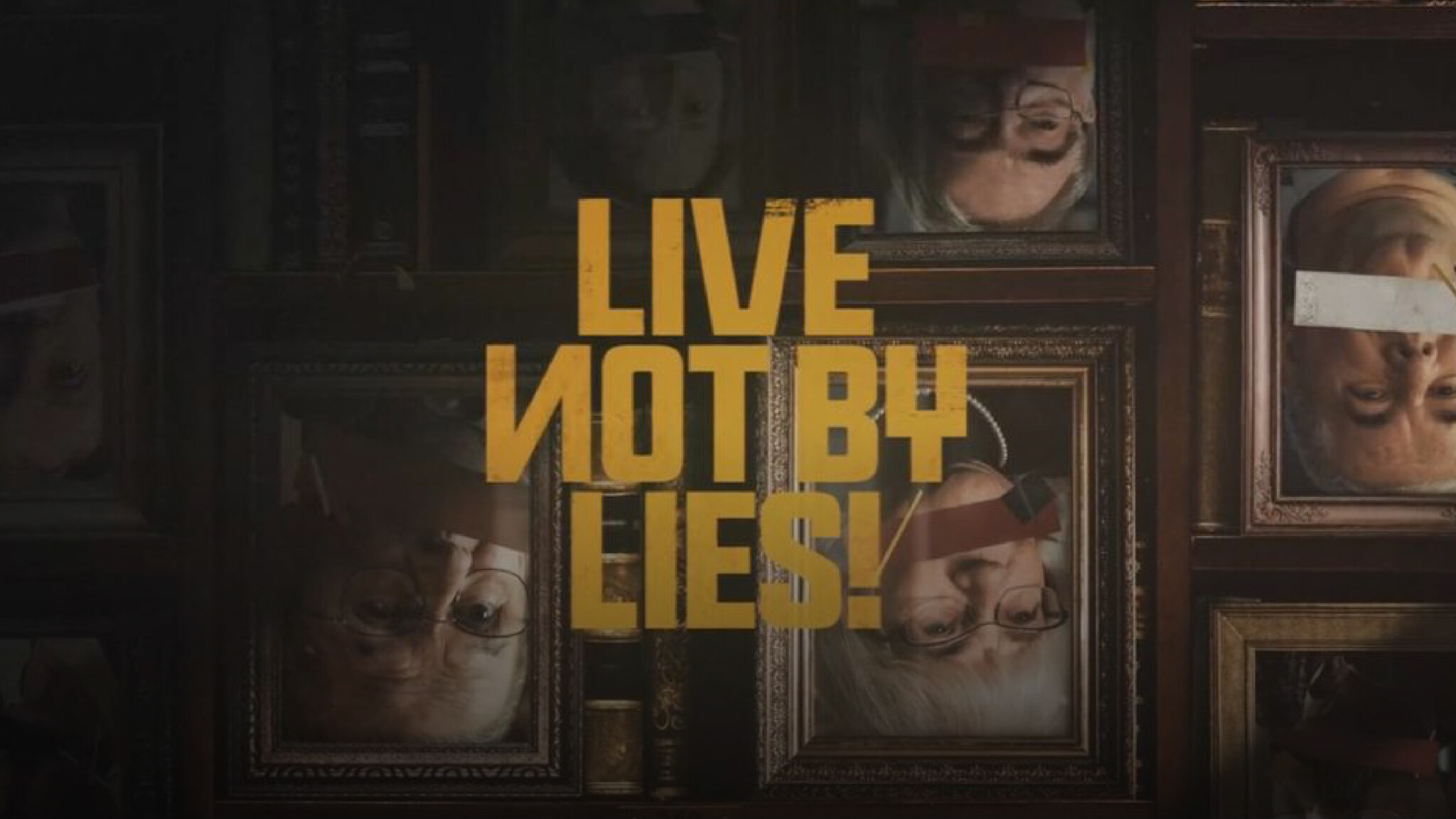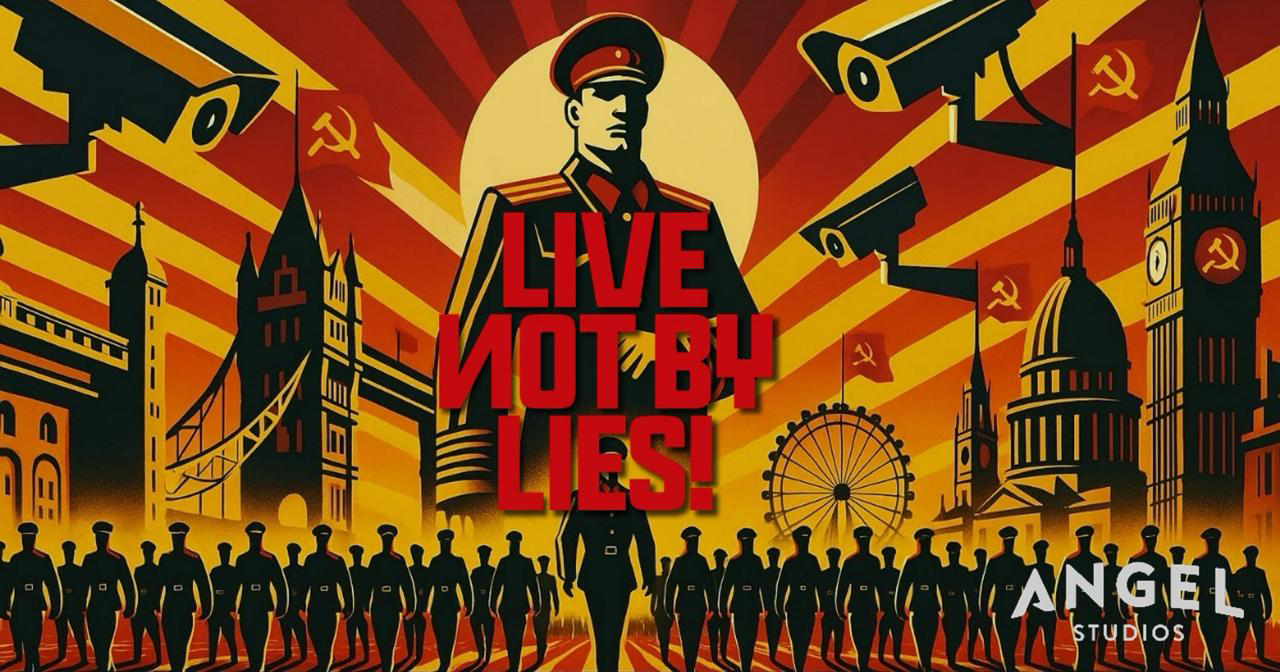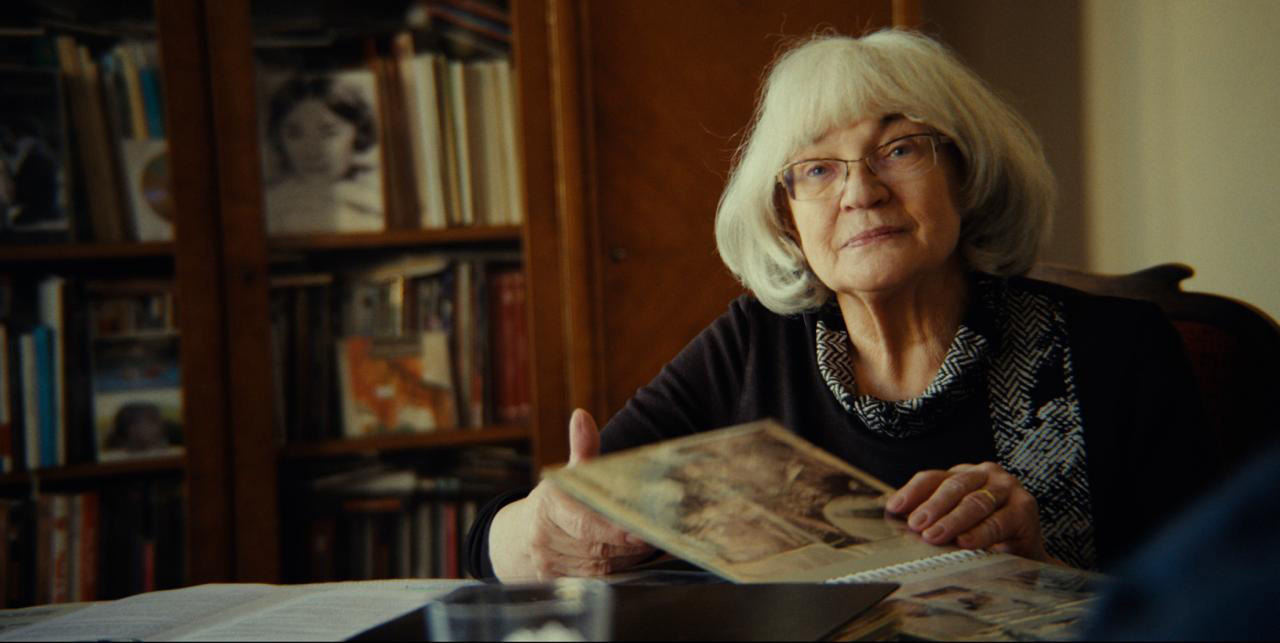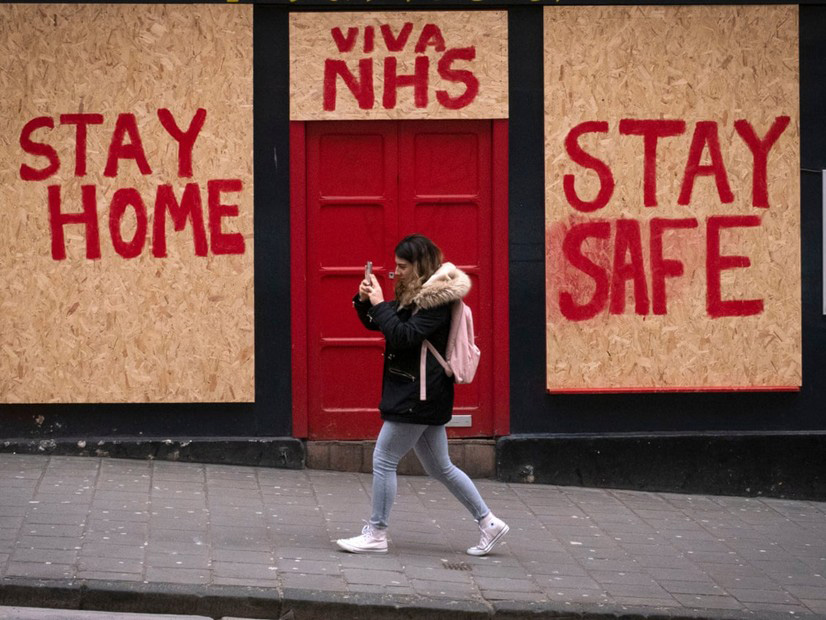
Amorphous athletic male bodies ripple across the screen. Individuality is lost. It becomes difficult to differentiate one pasty limb from the next as they tangle in rapid rhythm without the time or space to reflect. Propelled in a machine-like conglomeration, thoughts are carried away via muscular might to mark the liberation of Czechoslovakia from the Nazis, only to unknowingly usher in the next form of totalitarian rule.
Enjoy independent, ad-free journalism - delivered to your inbox each week
Old video footage of this mass gymnastics event clearly illustrates how individuality is lost under the sweeping force of ideology. This is one scene from Live Not By Lies, a film based on a book of the same title by Rod Dreher, directed by Isaiah Smallman, and released in April 2025 by Angel Studios. Although unconvinced by Dreher’s hardline Orthodox Christian approach, this film is a brave take on the history of totalitarianism and makes compelling viewing for any curious individual seeking to finesse their critical eye. Live Not By Lies is a plea to assess the truth using one’s own eyes.

Source: Brad Knull, Director of photography for Live Not By Lies
Footage of fallen totalitarian regimes remind us of the too-recent past. Charismatic leaders such as Hitler, Pol Pot, and Mussolini orchestrate their subjects under their spell. Human nature is fallible, and easy to meld through impressive ceremonies and the promise of comfort in a chaotic world.
The British curriculum used to hammer home the evils of fascism through a sustained examination of the Nazi regime and the Holocaust. This hardline historiographic approach is mirrored in the curation of the House of Terror in Budapest: a government-established museum which contains a confident and unapologetic denouncement of communism.
It is somewhat alarming to realise how few such indictive statements have become, especially parallels drawn to the contemporary moment. Despite being released the year prior, Live Not by Lies was given its moment on a sweltering night at the end of June in London. Journalists and political figures gathered in awe at the seeming boldness of Smallman to produce such a film, sharing in an underground feeling, especially pronounced when one considers the arrests of some individuals in the audience for speech-related issues. The medium of film formalises the importance of ceremony in unapologetically highlighting the horrors of history. The act of humans torturing their fellows is undeniably monstrous.
The confidence to denounce totalitarianism is built through the film’s attempts at definition; outlining its mechanisms and warning of its incumbent horrors. Several key texts crop up as references and constitute a reading list for later pursuit: the writings of Alexander Solzhenitsyn – including a video excerpt of his Commencement Address at Harvard University (1978) – Hannah Arendt, Aldous Huxley, and George Orwell. These names are hooks upon which all-too-recent events easily hang. Meanwhile, current conservative thinkers – including Douglas Murray and James Orr – add contemporary commentary through their pithy explanations.
One key question at the heart of the documentary regards how people fell under the spell of a few leaders. Orr’s explanation of totalitarianism as functioning with a tiny number of top-down decision-makers resonates with the most famous line from Orwell’s Animal Farm: “All animals are equal, but some animals are more equal than others.” Equality is a utopic lie legitimised with moral disguise. Parasitic totalitarianism infects its host to such an extent that human souls are reengineered to become monsters. Mass delusion results. Freedom is an illusion.
Live Not By Lies provides sustained deep delves into the plights of individuals whacked with the censorious stick. Footage of Isabel Vaughan-Spruce being arrested for the “thought-crime” of silently praying near to an abortion clinic in December 2022 opens the film. The approaching policemen appear confused, reflecting how totalitarianism is sleepwalked into by the general populace. Individual cases such as this one are woven into a wider structural examination, showing how totalitarianism operates on both the micro and macro scale.

Isabel Vaughan-Spruce
Whatever your political stance, one cannot help but be awestruck by the courageous individuals interviewed: people who refuse to lie, no matter the cost. One individual who spoke out against the communist regime in Czechoslovakia was Kamila Bendová, for which she faced institutional cancellation in her professional life as a mathematician. In an interview, she describes how her political beliefs meant that she was prevented from publishing articles or organising conferences at the Mathematics Institute of the Czechoslovak Academy of Sciences. In an Aldous Huxley dystopia, comfort is the carrot that lures us into quiet acceptance. The safety-ism discourse associated with coronavirus and its ability to eke out the authoritarian impulse is a recent example that one can easily spin from the film. As Murray explains, safety is an easy way to make people agree to limitations on their freedom.

Kamila Bendová. Source: Brad Knull, Director of photography for Live Not By Lies
Part of the thrill of the film – its capacity to captivate from beginning to end – was its convincing narrative. Complex happenings are explained straightforwardly and injected with power through fear-fuelled threats. As the film itself warns, we should be wary of ideology. It is up to the viewer to assess how extreme these examples are for the West today; for example, whether the footprints could describe current happenings in the university. “Cancel culture” was certainly rife under totalitarian regimes, but its degree of embeddedness is still up for debate in the West. Sometimes the comfort offered by an institution – the lure of freelance work or the next fixed-contract position – sells good ideas whilst concealing the overall price. The corrosion of freedom may be festering under our feet.

A woman walks past a boarded-up restaurant in Edinburgh, 2020. Source: Jane Barlow/PA
The least convincing part of the documentary concerned the proclaimed impact of technology. Arendt argues that social atomisation and loneliness is one reason why the German population were susceptible to Nazi ideology. Desperation for guidance made them vulnerable to an authoritarian figure. Dreher relates this to the impact of technology today, and its false paradisal promises. Undoubtedly, technology fundamentally reshapes how we interact with each other, but the parallel is anecdotal at best and misunderstands the connective power of social media for a savvy generation who use it to network and arrange in-person meet-ups, often propelled through the discovery of community.
Solzhenitsyn declares at one point of his Harvard Address, “Must one point out that from ancient times a decline in courage has been considered the first symptom of the end?” After watching the film, I am unsure at what point – or, if at all – the West can so easily be positioned on this unilateral sliding scale. However, the footage and unapologetic denouncement of totalitarianism certainly sharpens my eye to the latent authoritarian impulses within us all. I revise my original perception: although resemblant of a history documentary, the film is certainly about the present. Vaughan-Spruce tells us that it is unfruitful to ponder upon what we would do in the footsteps of Nazi guards. Whether or not we have courage now is a more pressing question than whether we would have had courage then.

Comments (0)
Only supporting or founding members can comment on our articles.